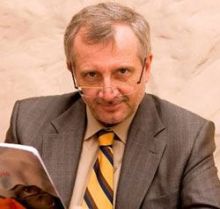Last week I had a pleasure to accompany President of the European Parliament for the inauguration of the Eastern Partnership in Prague.
When the summit began on 7th May, many doubted Eastern Partnership would make history. For a start, the turnout was much lower than expected – the ousted Prime Minister Mirek Topolanek had failed to secure the presence of Europe’s major political figures, such as the President of France and Prime Ministers of Britain, Portugal, Italy and Spain. To the relief of some and disappointment of others, Mr Lukashenko had sent a replacement – his deputy Vladimir Semashko. A PR problem was narrowly avoided.
But it was not the conspicuous absence of Europe’s political heavyweights that was my main concern. I was much more anxious about the general absence of political will to tear down the new Iron Curtain and set the stage for a lasting integration with the former Soviet Bloc.
A brainchild of Poland and Sweden, the Eastern Partnership was supposed to foster closer political and economic ties between the European Union and the post-Soviet states of Ukraine, Georgia, Belarus, Armenia, Azerbaijan and Moldova, as well as to empower the latter’s democratic and free market reforms. The proponents of the initiative would like to see it as a stepping stone towards the EU membership for those who meet the accession criteria. The United Europe is deeply divided on this issue, though.
While it is easy to understand the scepticism with which Germany, France and the Netherlands view the Belarussian government’s recent commitment to promote democracy, the rule of law, good governance and respect for human rights, their reluctance to give green light to Ukraine is rather surprising. In my view, Ukraine has already earned its moral right to join the EU. I’m glad it is also my government’s position.
Another bone of contention proved to be visa liberalisation. Apparently, visa free travel will be decided in “a long-term perspective and on a case-by-case basis”. Such an approach does little to convince our eastern partners that Europe is serious about opening up and living up to its ideals. Most worryingly, however, it may give credence to Russia’s claims that the Eastern Partnership is hardly a partnership of equals.
Russia, for its part, certainly welcomes the exclusion of the territorial integrity principle (pushed forward by Georgia and Azerbaijan) from the final text of the EP Declaration, but it continues to view the whole concept of Eastern Partnership with anxiety and distrust. Satisfying the diverse expectations of all parties to the initiative without angering Moscow, already seriously upset by Europe’s encroachment on its former sphere of interest, will be a delicate balancing act. The entire project is only as strong as its weakest link.
There is common concern that a further rift among the founding fathers of the Eastern Partnership, compounded by insufficient determination and lack of vision, may put the whole idea in jeopardy. Once the initial enthusiasm fades, the Swedish-Polish initiative may prove largely symbolic. Last week’s summit was hardly a show of unity and resolve. Whether the new European Parliament offers better leadership is an open question.
Still, I’m optimistic about the future of the Eastern Partnership. I saw it being born and I believe I’ll see it grow, too. The wheels have been set in motion, the wind of change is in the air. There is no turning back.







